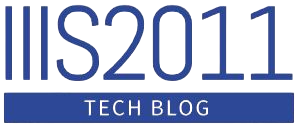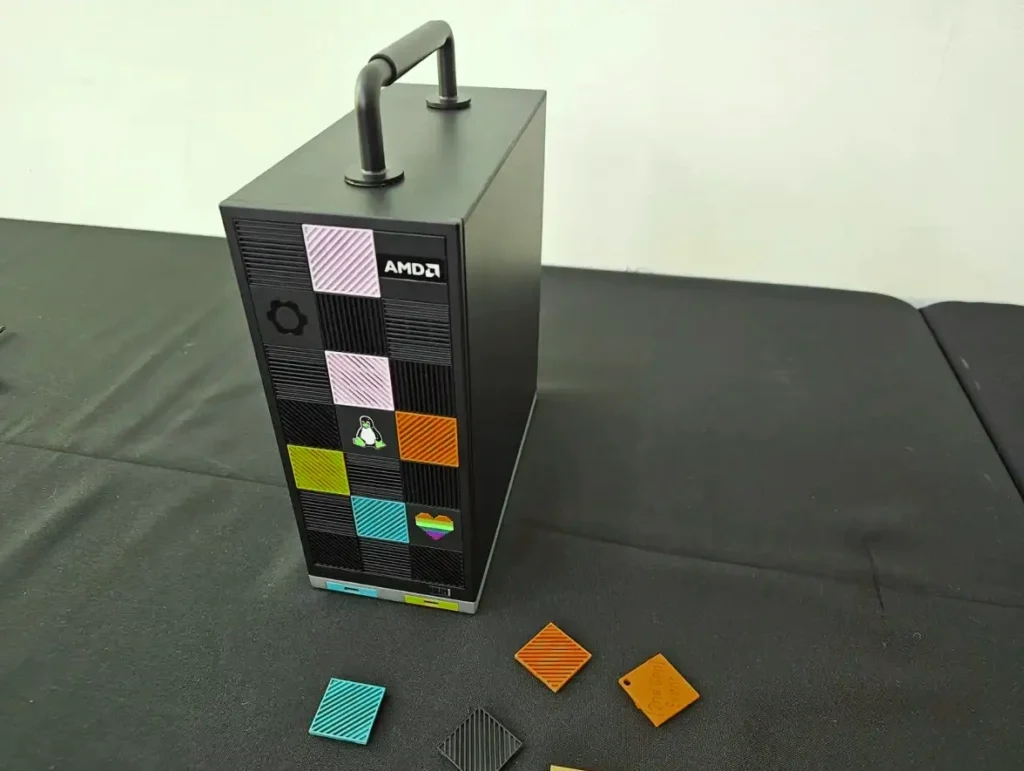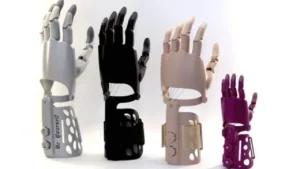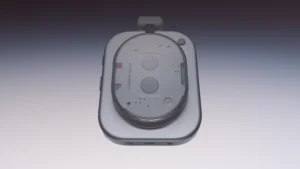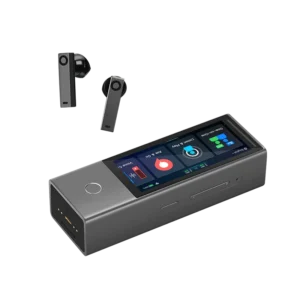Framework’s first desktop is a compact microtower that features the company’s signature swappable I/O modules and a distinctive design. It promises strong productivity and gaming performance thanks to a special AMD processor. Unlike traditional desktop PCs, the Framework Desktop is portable, well-built, and compact enough to fit into a backpack. Its processing and graphics capabilities, powered by a highly anticipated Ryzen AI chip, position it ahead of many mini PCs.
Design and Build
The Framework Desktop is easy to carry with one hand, with an optional handle available. It follows a Mini-ITX form factor and weighs around 10 pounds. The chassis is sturdy, with every component carefully arranged inside. The top of the case has two flip-top fasteners that allow access to the interior. The front panel attaches magnetically and can be easily removed.
Customization extends to the front panel, which features replaceable plastic tiles that allow for personalized colors, symbols, and logos. Additionally, the bottom edge houses two Expansion Card bays, enabling users to swap out I/O modules and change available ports as needed.
Internal Components and Features
The Framework Desktop does not support a dedicated graphics card, instead relying on an integrated AMD Radeon 8060S GPU within its Ryzen AI processor. The LPDDR5x RAM is soldered onto the motherboard, preventing future upgrades. The back panel includes two USB4 Type-C ports, two USB-A ports, two DisplayPorts, an HDMI output, and a 5Gbps Ethernet jack.
Cooling is a collaboration between Cooler Master and Noctua, with a large 120mm CPU fan in Noctua’s signature beige and maroon dominating the interior. The motherboard follows a standard Mini-ITX design and includes a PCI Express x4 slot, two PCIe NVMe M.2 slots supporting up to 16TB of storage, and an M.2 module for Wi-Fi connectivity. The power supply is a semi-custom 400-watt unit in the Flex ATX form factor.
Performance Expectations
The Framework Desktop’s Ryzen AI Max chip is designed for laptops and tablets, raising questions about its performance in a desktop environment. At its launch event, Framework set up several units for a LAN party, demonstrating smooth performance. AMD claims the Ryzen AI Max can handle gaming at up to 1440p with high detail settings. Elden Ring ran well on the test units, showing promising frame rates and graphics quality. A full review will provide more insights into its performance compared to gaming PCs with discrete GPUs.
Pricing and Availability
Framework is accepting pre-orders for the Framework Desktop, with shipments expected in Q3. The top-tier configuration, featuring an AMD Ryzen AI Max+ 395 processor and 128GB of RAM, is priced at $1,999. The base model, with an eight-core Ryzen AI Max 385 and 32GB of RAM, starts at $1,099. During its announcement, Framework highlighted that the high-end model is over $2,000 cheaper than a comparable Apple Mac Studio.
A full review will follow as the launch approaches, providing a deeper look at the Framework Desktop’s capabilities and value in the mini PC market.
